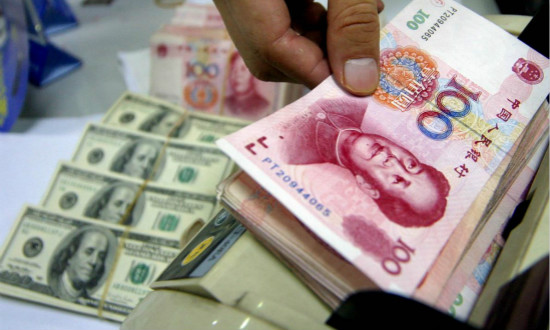RMB should offset U.S. rate hikes impacts
The U.S. Federal Reserve raised its benchmark interest rate by a quarter percentage point on Wednesday, following its most aggressive tightening cycle in 2022 when it raised the interest rate by 425 basis points, setting a record for the largest and most frequent rate hikes since former Fed chairman Paul Volcker introduced rate hikes to contain inflation in 1981.
As the U.S. economy retains its strong growth momentum, unemployment continues to decline — so does the negative impacts of the COVID-19 pandemic on the U.S. economy. Yet inflation remains very high in the U.S., and reining it has become a priority for the Fed.
The room for more rate hikes is limited, however. With the advancement of technology and the reduction of transaction costs, interest rates will gradually decline in the long run. Also, high interest rates need to be backed up by strong economic growth while the risk of the economy's contraction is building despite the strong growth momentum at present.
Not surprisingly, the U.S.' rate hikes have put a lot of pressure on other countries, including China.
First, the speculation over the depreciation of the renminbi is likely to continue. The Chinese economy may encounter headwinds also because of rising imported inflation pressure and thus it will have limited room to adjust monetary policy thanks to the increasing deviation in the two countries' monetary policies and the continuing strengthening of the U.S. dollar.
While the outflow of capital from developing countries will increase, the U.S.' tightening monetary policy will restrain global demand and restrain the overall economic growth of emerging markets.
The priority for the Chinese authorities now is to ensure that the central bank takes appropriate measures to help stabilize the renminbi and help increase the market's confidence in the currency.
To start with, central bank officials could send messages through different channels to the market players, including investors, as well as the general public so as to increase their confidence in the renminbi. The central bank could also consider reviving the countercyclical factor in the pricing mechanism of the renminbi's central parity rate against the dollar, which could help stabilize the fluctuating daily reference rate and restore market confidence.
Second, the central bank needs to prudently implement monetary policy and strengthen foreign exchange liquidity management. Since the benchmark interest rate is already relatively low, the central bank (People's Bank of China) should adopt a cautious attitude toward further interest rate cuts in order to prevent capital outflows from causing any further depreciation of the renminbi.
And while monetary policy should focus on maintaining a moderate amount of liquidity and improving the monetary structure, measures should be taken to prevent the excessive release of liquidity.
Third, China should also strengthen macro-prudential management and facilitate the benign flow of cross-border capital. It could do so by moderately adjusting the macro-prudential parameters of cross-border financing for enterprises and financial institutions to increase the liquidity of the dollar at home and boost market confidence. China should also manage international capital outflow in a way that it influences liquidity supply and demand in the foreign exchange market.
And fourth, China needs to introduce support policies to promote domestic economic growth. Whether the renminbi can regain its former position depends not only on the Fed's future interest rate policy but also, to a large extent, on whether China can achieve reasonably high growth.
It is imperative therefore that China adopt support policies to boost economic growth. There is also a need to implement a moderate fiscal policy, and study its impacts on social and economic structural adjustment and income distribution, so as to improve the financial infrastructure and promote high-level opening up.
As for digital renminbi-related laws and regulations, favorable policies should be introduced to consolidate the legal and regulatory foundation for the development of the digital renminbi, help expand the scope of digital renminbi programs that have proved effective in pilot projects, and promote the internationalization of the renminbi.
Moreover, the authorities should also promote supply-side structural reform, expedite the offloading of excess capacity, encourage entrepreneurship, promote innovations, cultivate new economic growth points, facilitate industrial upgrading, and maintain competitive advantage in international trade to stabilize the financial sector.
The author Liu Weiping is a researcher at the China Development Bank; and Wang Sheng is a professor of computer science at Wuhan University. The views don't necessarily represent those of China Daily.

